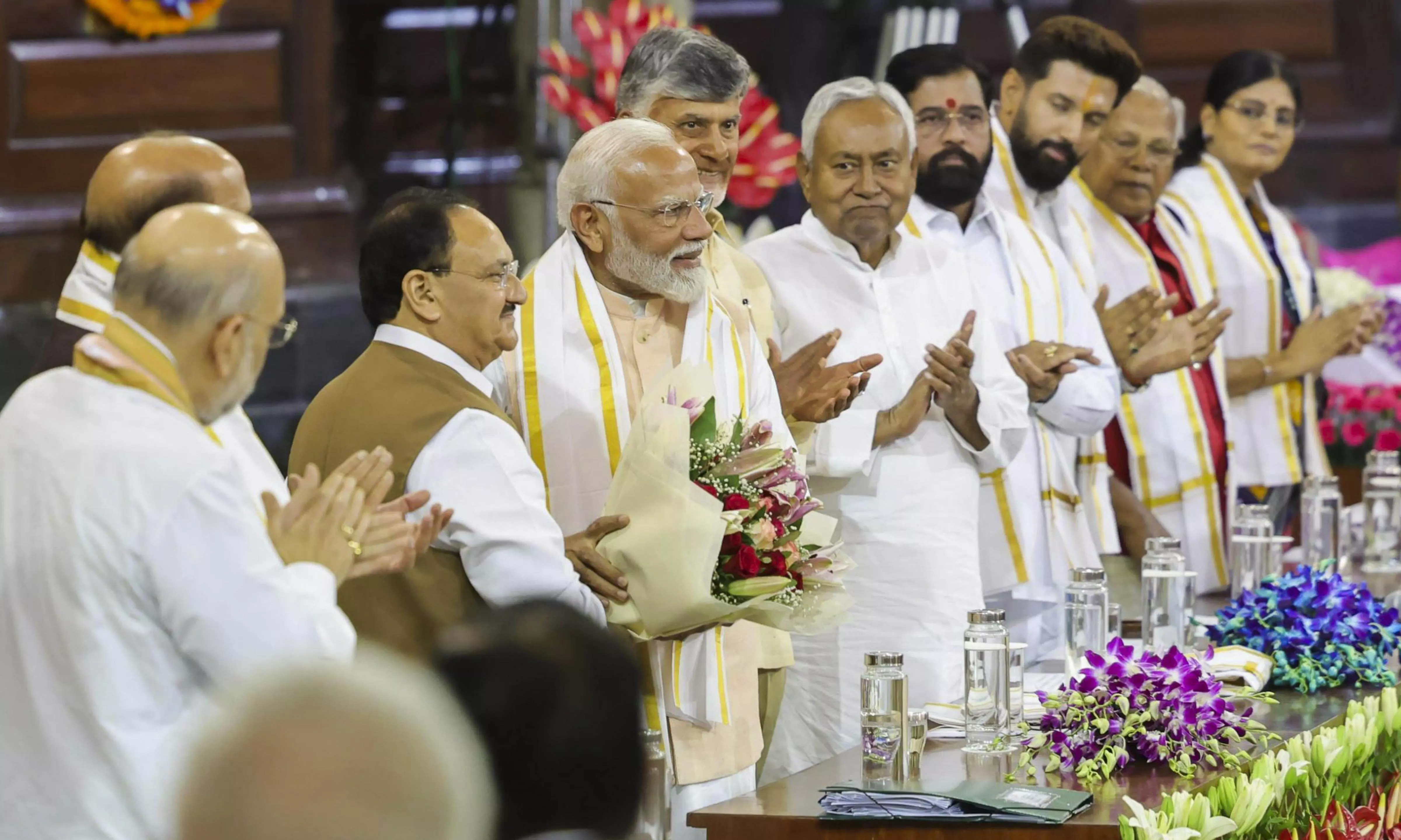NDA allies eye key roles as Modi's third government takes shape

New Delhi: In a notable departure from previous terms, Prime Minister Narendra Modi's third swearing-in ceremony was held just four days after the election results, compared to ten and seven days for his first and second terms, respectively. This rapid organization came despite the BJP not securing an outright majority, necessitating intense negotiations with key allies, particularly N Chandrababu Naidu's TDP and Nitish Kumar's JDU, to finalize ministerial positions.
Both the TDP and JDU have secured two ministerial posts each, comprising one Cabinet rank and one Minister of State post. However, a significant question looms over who will be appointed as the Lok Sabha Speaker. While reports suggest that both the TDP and JDU are eyeing this crucial position, BJP sources indicate a reluctance to cede the role.
Constitutionally, the Speaker's post becomes vacant immediately before the new Lok Sabha convenes. The President appoints a pro-tem Speaker from the senior members to administer the oath to the newly elected MPs, after which a Speaker is elected by a simple majority. Although no specific qualifications are required for the role, a deep understanding of the Constitution and parliamentary procedures is beneficial. In the last two BJP-majority Lok Sabhas, Sumitra Mahajan and Om Birla served as Speakers.
The role of the Lok Sabha Speaker is inherently complex. The Speaker is expected to be non-partisan, yet they are elected as a representative of a particular party. Historical precedents include Congress veteran N Sanjiva Reddy, who resigned from the Congress upon becoming Speaker, and others like PA Sangma, Somnath Chatterjee, and Meira Kumar, who maintained their party affiliations but asserted their commitment to the entire House. Notably, Chatterjee was expelled by the CPM for his impartial stance during the 2008 no-confidence motion against the UPA government.
Political veterans N Chandrababu Naidu and Nitish Kumar are particularly interested in the Speaker's role due to its significant influence, especially concerning the anti-defection law. This law grants the Speaker substantial authority in decisions regarding member disqualification on defection grounds. Kumar has previously accused the BJP of attempting to destabilize his party, underscoring the strategic importance of the Speaker's position as a safeguard against internal mutinies and political manoeuvres.



